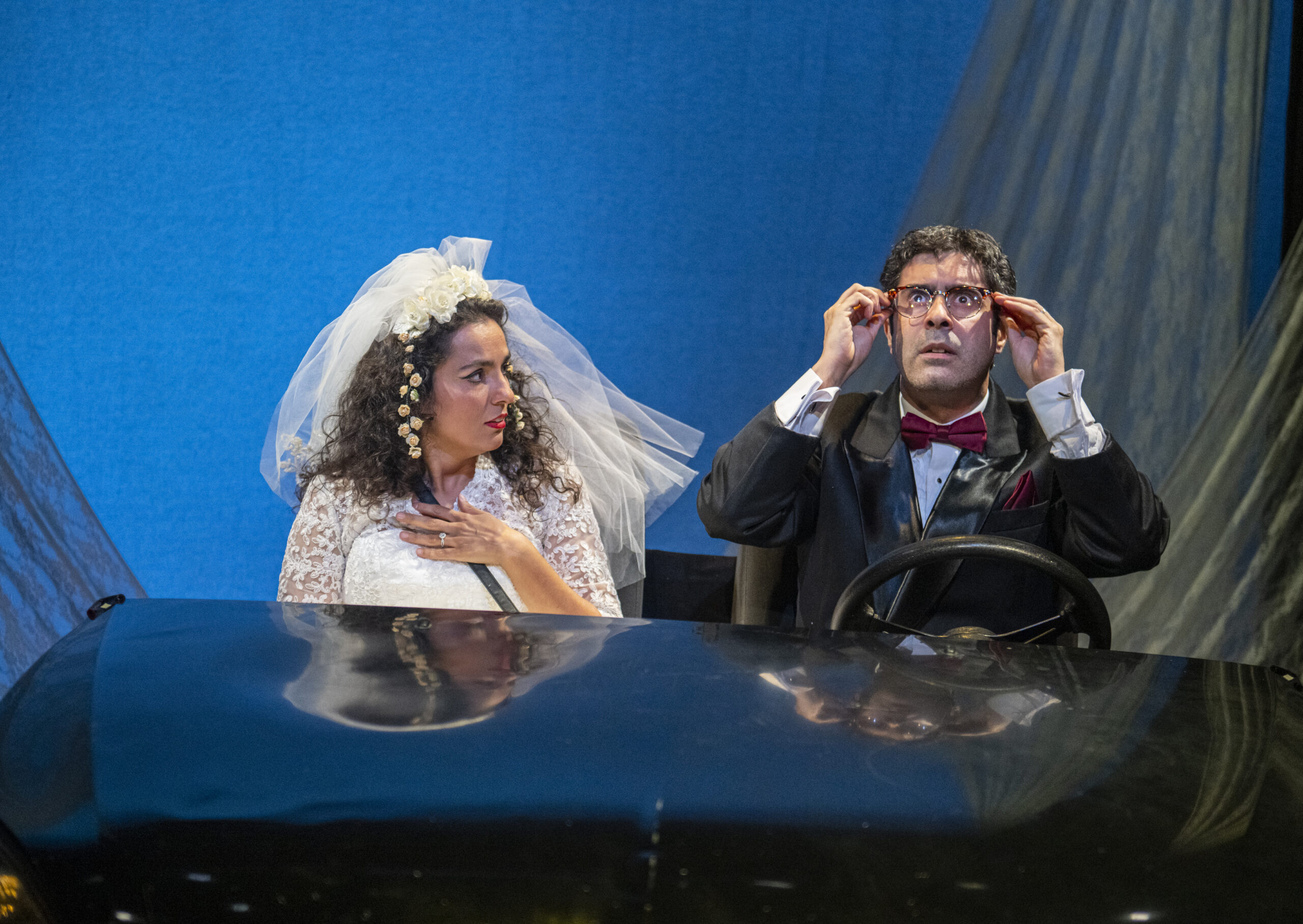It’s uncomfortable to question the nature of your reality. Three new local theater productions, playing now through mid-November in San Francisco and Berkeley, challenge established beliefs—with some unnerving, and even violent, consequences.
Though their respective plots diverge, all three find their characters questioning whether “normal” is an empirical truth or a collective choice.
The Marsh SF, 1062 Valencia St., SF
Through Nov. 18 | $20-$100
(415) 282-3055
Mask & Proof of Vaccination Required
Ellen is hardly the first small-town girl drawn to New York, but that doesn’t make her fate any less tragic in this world premiere written and performed by Kathryn Keats.
The talented teenage singer endures the strict tutelage of seasoned instructors who tell her she has promise, giving her the confidence to pack her bags for the Big Apple. After a few auditions go nowhere, Ellen drifts into the orbit of a talented composer whose inability to conquer his demons results in him sharing them with her.
The Hummingbird is a show that will be painfully familiar to anyone who’s ever had a loved one consumed by addiction or mental illness. It’s about an unlikely couple (“The first kiss is always the best kiss,” she says) falling deeper and deeper into the abyss. The fact that the man is more than a decade older than his teenage girlfriend is the first red flag. Her sad belief that she can help him past his abusive ways is as uncomfortable as it is familiar.
Keats is no stranger to The Marsh, having mentored many of its talented performers. With nothing more than her own bird-like voice and the instrumental backing of Kevin Gerzevitz, Keats’ show is both a fine showcase for acting and singing, as well as a visceral testament to how easy it is to fall into the very bad habits of those we want to save. There eventually comes a point when your own survival must take priority. With The Hummingbird, Keats and director David Ford have created one of the best solo shows of the year.
Berkeley City Club, 2315 Durant Ave., Berkeley
Through Nov. 13 | $15-$40
(510) 558-1381
Mask & Proof of Vaccination Required
George C. Wolfe’s play, The Colored Museum, has been controversial since its 1986 debut, as it intentionally objectifies Black personae for the sake of highlighting everything wrong with such objectification. It’s overtly cited as an influence in Mildred Inez Lewis’ new work, The Museum Annex*.
In this production, we’re taken through several wings of the titular museum by five docents, witnessing various scenarios in which Black women jump wildly back and forth between self-love and self-hatred.
An early scene features an audition for an upcoming Hollywood slave epic, the only type of film outside of the Black Panther franchise where producers will tolerate a primarily Black cast. In a later scene, we see a pair of Black women at a fashion show not only express disgust with African-inspired clothing, but also with the very concept of Black beauty. Playing such heavy material mostly for laughs makes it all the more impressive when Lewis hits her mark.
Unfortunately, most of her rote dialogue comes off feeling like Scriptwriting 101. Granted, that owes a bit to Wolfe’s original, but he knew how to better balance the boilerplate. That’s why a scene in which a former slave (played by Brittany Nicole Sims) attempts to claim her 40 acres and find her shattered family is one that benefits from some of the best dialogue in the play. So too does a later sequence in which an astronaut (also Sims) decides that leaving Earth for the vastness of space is more sensible than fighting white supremacy one day more. These two scenes are so good that most of the others fall short by comparison.
While the play doesn’t always clear the incredibly high bar Lewis has set for herself, its goal of giving Black women the attention the world often refuses them remains noble.
Potrero Stage, 1695 18th St., SF
Through Nov. 6 | $20-$100
(415) 626-4061
Mask & Proof of Vaccination Required
If you stay in any relationship long enough, all the days begin to run together. It can be hard to remember what you and the other person were even like when you first met. For romantic couples, that can mean forgetting what it was like when they first fell in love. Donya (Dina Zarif) and Davood (Damien Seperi) are one such couple, trapped on a single car ride that leads them from their wedding to a potential divorce.
Iranian playwright Naghmeh Samini’s script (translated and directed by Torange Yeghiazarian) could easily work as an episode of The Twilight Zone in its bending of time and space. The play even has echoes of Waiting for Godot, making one wonder if our couple are trapped in their endless ride by choice or by some unseen higher power—perhaps represented by the mysterious Danial (Zaya Kolia), whom they frequently encounter.
Golden Thread’s raison d’être is bringing Middle Eastern stories to Western audiences. For those unfamiliar with the former, it’s enlightening to see the parallels through another cultural lens. One could imagine this story set in a red state with Tammy Wynette’s “D-I-V-O-R-C-E” playing in the background. The ending attempts to wrap things up a bit too neatly, but the time-bending story about a relationship at the end of the road (literally and figuratively) lingers with you long after.
